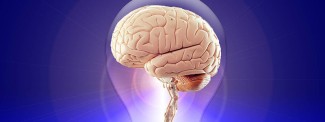Methamphetamine is a highly addictive psychostimulant drug. Its effects depend on the dose and time of administration. Importantly, it is used in the United States to treat attention deficit hyperactivity disorder (ADHD). Ph.D. student Sofia Baptista from Alberto Bacci’s team and their colleagues looked at the effects of methamphetamine on a model which mimics the treatment as it is prescribed in the US. Their results show the effects of treatment on certain neurons that could have a positive effect on memory. These results were published in eNeuro on June, 2016.
The use of methamphetamine (METH), a drug of abuse, has increased all around the world. METH is a psychostimulant affecting the functions of hippocampus, a brain area involved in memory, learning, navigation and decision making. Abuse or misuse of methamphetamine can lead to memory deficits and a decrease of hippocampal volume. However, METH’s cognitive effects vary depending on the dose and time of administration, ranging from memory enhancement to impairment. Importantly, in the United States, METH is approved for the treatment of attention deficit hyperactivity disorder (ADHD). People with ADHD have trouble focusing or being attentive and tend to act impulsively.
In this study, researchers focused on the impact of a medium-term (1 week) treatment with low doses of methamphetamine on the generation of new neurons and their plasticity. The doses that were used mimicked ADHD treatment.
Generation of new neurons (or neurogenesis) in a specific area called dentate gyrus (part of the hippocampal formation) contributes to the formation and consolidation of new memories. Previous studies showed that neurogenesis can be affected by METH, depending on the dose and frequency of administration. Intermittent access to METH, which mimics a human recreational use, increases proliferation of specific dentate gyrus cells, whereas a short-term or long-term daily use of this drug lead to a decrease in number of these cells. In vitro studies also showed the negative impact of METH on dentate gyrus stem cells (essential for production of new neurons).
The results of Alberto Bacci’s team show an acceleration of the maturation of immature neurons (immediately following neurogenesis), accompanied by increased synaptic potentiation of dentate gyrus granule cells at more mature differentiating stages. Synaptic potentiation is a form of synaptic plasticity believed to underlie learning and memory.
They propose that administration of medium-term treatment with low doses of methamphetamine reinforces synaptic plasticity at a specific stage of granule cells’ maturation and could therefore affect positively memory performances.
In light of these results, it is now very important to understand how prolonged use of METH will convert such “positive” effects on neurogenesis and synaptic plasticity into the deleterious effects on cognitive performance in METH-addicted subjects.
Sources
Long-Term Treatment with Low Doses of Methamphetamine Promotes Neuronal Differentiation and Strengthens Long-Term Potentiation of Glutamatergic Synapses onto Dentate Granule Neurons. Sofia Baptista, Joana Lourenço, Nuno Milhazes, Fernanda Borges, Ana Paula Silva, et Alberto Bacci. eNeuro, 11 July 2016.
https://www.ncbi.nlm.nih.gov/pubmed/27419216







